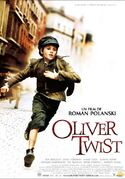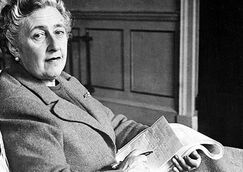-
Par gary johns le 13 Janvier 2016 à 12:01
Early life Charles Dickens was born in Portsmouth, England, in 1812. His father was a civil servant. The family lived in Rochester, Kent.
In 1823 his father went to prison because he couldn't pay his debts.
His family was penniless and Charles stopped school and had to work in a factory to earn money for the family. For the first time he worked with poor people, and he saw a prison when he visited his father.These visits forged an opinion in the mind of the young Dickens. He thought that Britain's society was unjust in the 19th century. Dickens realized that poor people had a hard life.
VOCABULARY : (that = que)
Charles Dickens 
Adult Life Later he continued his studies. Then he started working as a journalist in London. In 1836 he started writing novels. His books were published in monthly magazines. They were very popular.
Dickens's work
In his life, Dickens wrote novels about the society of the 19th century. The heroes were usually poor people or orphans. The villains in his books were often lawyers, judges and politicians. He sympathized with poor people because of his experiences as a boy when his father went to prison. And he didn't like politicians and lawyers. Dickens's books in English are often compared to Victor Hugo's books in French.
Dickens died in London in 1870.
Bibliography : These are Dickens's most famous books
The Pickwick papers (1836)
Oliver Twist (completed in 1839)
The Life and Adventures of Nicholas Nickleby (1841)
David Copperfield (1850)
The Little Dorrit (1857)
A Tale of Two Cities (1859)
Great Expectations (1861)

In the 20th and 21st Century Dickens's work became very popular in the 20th century. His stories were adapted to the cinema and many films were made of his books
In the 1960s a musical was made of the novel "Oliver Twist". Oliver Twist was a typical Dickens character : a poor orphan boy who lived in London in the 1830s. And in 2005 the director Roman Polanski made a new film of the same book.
-
Par gary johns le 23 Octobre 2015 à 15:22
Lisez l'article pour faire les exercices A, B et C sur la fiche de travail. Cliquez sur le lien pour l'audio après le texte pour faire exercice D

Agatha Christie was born in 1891. She grew up in Torquay, a peaceful town by the sea in the south-west of England. She got married to Archibald, an R.A.F pilot, in 1914 but they divorced in 1926. She married again in 1930. She had one daughter, from her first marriage. t
She wrote 66 detective stories in her life. Her most famous book was "Murder on the Orient Express" which she wrote in 1926. Her books have sold over a billion copies in English, and over a billion copies in their translated versions.
She created the character of Hercule Poirot, a Belgian detective, who solved the mysteries in a lot of her books. He was small, a bit fat because he liked eating Belgian chocolates, and he spoke English with a very strong French accent. But he was very clever and always found the criminal or the murderer. Another famous character created by Agatha Christie was Miss Marple. She was an old woman with grey hair and pale blue eyes. She was very wise and always helped the police in their murder investigations. Normally Miss Marple was more intelligent that the police officers.
A lot of films were made of Agatha Chritie's stories. The famous actor Peter Ustinov played the part of Hercule Poirot in several films in the 1960s and 1970s. A television series called "Hercule Poirot" was very popular in Britain from 1989 to 2013. And in the USA the series "Murder she wrote", featuring Miss Marple, was televised for nearly 20 years.
She also wrote plays for the theatre. She wrote the play "The Mousetrap" for the radio in 1947. The first theatre performance of the "Mousetrap" was in London in 1952. You can still see the play today in London because it has never stopped. It is the longest-running play in the history of theatre.
Agatha Christie died of old age in 1976.
Click on the link to listen to the audio . Answer the questions on exercise "D" of your sheet.
 Suivre le flux RSS des articles de cette rubrique
Suivre le flux RSS des articles de cette rubrique
Collège Jacques Prévert - Les Arcs sur Argens -



